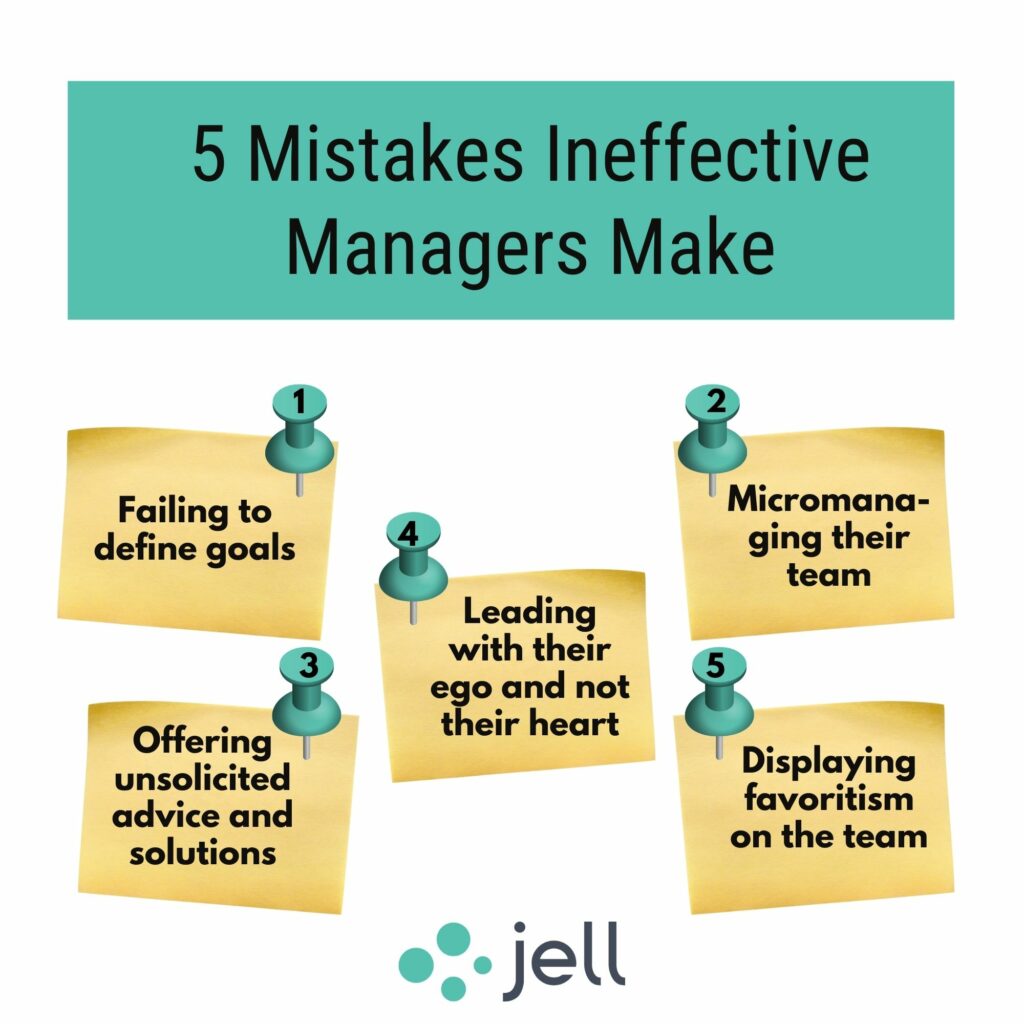Great managers make all the difference. They extract the best results from teams, more productivity from individual employees, and foster a rich culture that leads companies to thrive, such as those companies who master the Rockefeller habits.
Having the right talent at the top of your organization builds the best foundation for sustainable success.
So that’s why it’s essential that executives identify the right qualities that make great managers when choosing their leaders. A company’s executives must reinforce the importance of these values when delivering the day-to-day direction for each team. It’s equally important that current management assess their own behavior and determine how to consistently improve for the best outcomes.
The future of your business depends on it.
In this post, we’ll explore some of the vital traits that separate the extraordinary leaders from the mediocre ones.
Share daily standups, check-ins, and OKRs.
14-day free trial. No credit card required.
Related Articles
How To Avoid The Common Mistakes Of First-Time Managers
What is Asynchronous Communication? Tools & Tips for your Remote Team’s Success
Mistakes Managers Often Make
Managers are human and as we all know, humans aren’t perfect. I’m sure we all remember that one bad manager we had in the past. What about their managerial style rubbed us the wrong way? Were they poor or great communicators? Were they hawking over our shoulders? Clearly defining our job roles?
Let’s review the cardinal sins of managing employees. Starting with our first culprit…
1. Failing to define goals
Ever felt frustrated in your job because you weren’t sure what was expected of you? Failing to define goals for your employees leaves them annoyed and frustrated. Sure, some employees are self-starters, but most of the time, employees want to know what your expectations of them are.
The thing is, employees can’t be productive when they don’t have a direction or clear understanding of their work. They don’t know how or what to prioritize. And when employees don’t know what they’re doing, they may want to leave to a company who’ll prioritize clearly defined goals. Great managers set attainable goals for employees and reward them accordingly.
Jell can help with this. We offer OKR templates and framework for setting goals and achieving them on time.

Check in with your team through Slack every day and share your goals with one another. Whether you prefer annual or quarterly goals, your entire team can track your progress and share results along the way.
By checking in every day, your team can keep goals in the front of mind and greatly increase the likelihood of your team’s success. Show your progress with:
- Metrics
- Comments
- And linked daily tasks
2. Micromanagement
A survey found that 79% of respondents experienced micromanagement in their careers. Have you ever had a manager peeking over your shoulders at work? Or watching your every move on LiveChat or Slack, reminding you to stay active? No employee likes to be micromanaged and a great manager needs to remember this.
Employees need autonomy to survive and thrive at work. They want to feel trusted and respected. Micromanagement does exactly the opposite of that. You, as the manager, decide that your employee can’t be trusted to manage their time. Now, of course, there may be exceptions to this rule for employees who struggle with time management, but most of the time, employees need autonomy.
No employee can develop in an environment where managers don’t display total faith in their employees.
3. Giving unsolicited solutions
Autonomy stretches beyond letting employees work independently. It also means allowing employees to explore solutions on their own instead of having you serve solutions to them on a dinner plate. This way, they develop and sharpen their skills on their own and resolve difficult problems without you. Sometimes, managers want to solve the problem. They’re in charge and they think they know best. Soon, this unsolicited advice rubs your employee the wrong way. They don’t feel trusted to do the work required of them. Employees want to take ownership of their problems. You aren’t their parent or teacher. Stop spoon-feeding them.
4. Leading with an egoistic mindset
They say arrogance is confidence without compassion, and I have to agree. Egoism is a main cause of conflict and grief in the workplace. Arrogant managers think that because they’re the leader, they’re more skilled and competent at their job than their teammates. Inflated, supremic egos narrow a manager’s vision. They lose touch with their teammates and slowly, this chips away at the feeling of camaraderie, widening the gap on both sides. Great managers balance their own knowledge with the collective knowledge of the team. Everyone on the team has their own story and experience to offer. Let them use it.
5. Displaying favoritism
Sure, managers have their favorite employees just as parents have their own favorite child. This favoritism is disheartening and demoralizing for employees. Even the favorites second guess themselves, playing the game of imposter syndrome and think to themselves “am I actually good at this or was I chosen simply because I’m the favorite?” Poor managers show who they favor, irrespective of an employee’s individual talents or lack thereof.
This toxic behavior erodes the trust of employees. Some quickly take notice that hard, honest work doesn’t bear any fruit. Great managers never display favoritism.

We’ve looked at the mistakes managers make, but let’s look at what great managers do well. Here are five of the most effective ways great managers set themselves up for success:
Share daily standups, check-ins, and OKRs.
14-day free trial. No credit card required.
What makes great managers?
1. Great managers demonstrate focus

Great managers know how to steady the ship and keep the target destination clearly in sight. With a consistent focus on what matters most to the organization, employees will be inspired to do their best work for the common goal.
Leaders that panic at the first sign of trouble and burden their team with the job of constantly putting out fires will trigger the opposite reaction—a reliable feeling of frustration that leaves assignments incomplete and key metric goals missed.
How do you always remain focused? Commit to essential objectives and key results and motivate your team to use each daily task as a move toward the big picture goals.
Average managers, on the other hand, will expect KPIs to be met while overwhelming their employees with non-essential assignments. It might help you earn a few short-term wins, but in the long run, the organization will suffer. Stay focused instead. Instill confidence in your employees that you know where the team is headed.
2. Find what matters most to each employee

Part of what makes management so interesting, but often frustrating, is the myriad of employee personalities you’ll encounter on the job. But it’s the responsibility of the manager to adjust, not the other way around. As Mark Buckingham argued: “identifying and capitalizing on each person’s uniqueness saves time,” but getting to know what makes everyone tick isn’t always easy.
I’ve often found one-on-one meetings to be the most effective way to learn more about each employee and determine how to better craft your management style to meet their needs and inspire productivity. In these essential sessions, you can also gauge where they find motivation.
Don’t hesitate to simply ask for specifics: i.e. why are they doing their job, what do they want out of the role and what are their long-term goals? I have a list of 28 questions that can help spark interesting conversations during one-on-one meetings.
But the most important thing you can do is listen. The truly great managers know they have as much to learn from the people they employ as their employees will learn from them. When you demonstrate effective listening skills around your team, you are gathering crucial data that will make you great and help you tailor your behavior in the office to get the most out of the group.
Hold Meaningful 1-on-1 Meetings with Your Team, Get Our Instructive Download Here.
3. Stay positive

It’s so remarkably simple, yet a good attitude can make a major difference in the mindset of each employee as they enter the office. “When the outlook of the manager is positive, the team automatically gets rejuvenated every Monday,” Bhavik Sarkhedi writes.
“They start working positively and expect positive things in the way which enhances their productivity.”
A sizable chunk of leadership focus is reinforcing the idea that your team can achieve what it has set out to accomplish and should expect to win.
In an office culture that leans on the fear of failure as motivation instead, employees will be too afraid of screwing up to truly exceed expectations. This limits your entire organization’s success and can lead to trust dissolving among your team.
If your employees are walking on eggshells to keep from upsetting their manager, they are less likely to tap into the unique qualities that make them great workers.
Great managers take responsibility for their mood in the office and know that their behavior will have a disproportionate impact on the workplace atmosphere. They force themselves to remain upbeat in the face of adversity to rally the troops.
4. Be a great communicator

You can’t be an extraordinary leader if you are unable to get your message across to your employees. Great managers excel in communicating with their teams.
They use tools available to deliver regular updates on the progress of each major initiative. They outline a direction for the team to move in and underline the value of these goals for the organization.
To be a great communicator, a manager must be direct with employees on their performance and detail what is expected of them. Ambiguity around expectations will confuse teams and make companies less productive.
A straightforward and honest leader is someone who will earn the trust and respect of their employees. They can deliver the hard truths when needed and build strong relationships among their team, so they keep everyone moving together to achieve more.
If employees have clarity when it comes to goals and expectations, and if communication is consistent, there are fewer reasons to carve out unnecessary time to make sure everyone is on the same page.
While mediocre managers rely on large group meetings to attempt to get their ideas understood, a great manager understands that there are more effective ways to communicate without spending so much time devoted to team gatherings.
5. Stay fair and consistent

One of the other great trust-building traits of a wonderful manager is the ability to be impartial to employees when possible and have fair expectations in what they ask of them.
Your team won’t be inspired by a leader who expects a great deal from his or her subordinates but doesn’t demand the same effort in their own work. Additionally, a manager that lets some employees slack while others are forced to pick up the unfinished work will breed distrust among the ranks.
Of course, different employees require different needs, but you don’t want to exert all your energy bending over backward to get low performers to catch up at the expense of ignoring other employees that rely on your guidance as well.
The top managers do their best to inspire all employees to succeed at the level that matches their talent and experience and take the responsibility of leading by example. When employees don’t meet expectations, managers should do their best to implement impartial consequences, so everyone feels a responsibility to the team’s outcomes.
In Conclusion:
These tips and strategies will help you develop the qualities you need to become a great manager. However, any company that plans to staff its leadership ranks with great managers will do so by treating these traits not just as behaviors but as values to be instilled in everyone on the team.
It will be so much more difficult to expect exemplary management amidst a toxic culture. Advocate for a consistent, focused approach to management that values employee’s work and holds leadership accountable. Argue for positive culture as an essential ingredient of any great company’s success.
Great managers keep their teams up to date on what’s happening in the company, on their team, on other teams, and on goals. Try Jell for 14 days and bring your team together with daily standups, check-ins, and OKRs.
